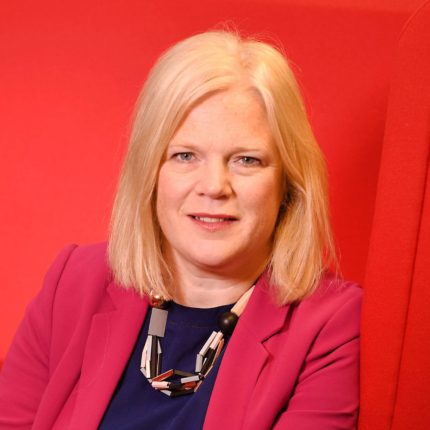Every UCAS application has been made by an individual who is looking to make life-changing decisions in the most unique of circumstances.
While their lives around them as they wait and reply to offers will be unfamiliar, when they start their courses, they’ll also be doing so with a different mindset than those cohorts before them. Our latest survey of applicants shows that over three quarters of them have been personally affected by coronavirus – effects that are likely to last beyond places being confirmed and term starting.
With August’s A level results day now set, confirmation that SQA results will come no later than 4 August, and a single, extended, date (18 June) for applicants to reply to their offers, we’re keeping the admission cycle as familiar as possible. At a time of unprecedented upheaval across society, this is sure to be a welcome relief for students who, overall, tell us they are still committed to their autumn plans. Naturally, their thirst for accurate and timely information is at an all-time high.
What we found
Most applicants (69 per cent) say the biggest effect of Covid-19 is financial, whether that be their own or their family’s finances. This is undoubtedly going to impact their spending habits and preferences – from their weekly supermarket shop to funding, and possibly furnishing, their accommodation.
Worryingly, albeit unsurprisingly, mental health features heavily among survey responses. Almost a quarter (23 per cent) of respondents said that the outbreak has impacted on their mental health, 13 per cent saying that a member of their family has also been affected. Unfortunately, three per cent of respondents say they have lost someone to the virus.
Mental health conditions are likely to be exacerbated and more complicated right now, with spending more time confined at home, separated from friends and loved ones, and an unfamiliar grading process for A levels additional, contributory factors. These are major and unforeseen changes to students’ lives and will influence the type and level of pastoral support required once at university, especially if they move away to study.
Financial difficulty, mental health difficulties and personal loss, coupled with the fact that they will (likely) have been outside of any educational setting for more than six months will make this year’s cohort different to their peers from previous years. While the current focus is on the recruitment cycle, this will need to shift towards supporting student transition and success once enrolled. Supporting these students to excel in the coming months and years, and not just through their application journey, will be the true definition of success for the higher education sector.
Through uniting as a sector and sharing what works, we can do it. We’ve successfully adapted so much in under six weeks. Just think what’s possible in just under six months.
Are students changing their minds?
A huge question going through many minds is where will students be studying? An online element to the start of term is looking possible, but has the lockdown meant that applicants are reconsidering their overall plans of specific university or college? Not as much as many have speculated according to our analysis.
We have previously reported that 86 per cent are sticking with their university choices. This hasn’t materially changed; however, while they rightly haven’t made any rash decisions, almost a third (32 per cent) say that they are thinking about changes. More than one in ten (11 per cent) say their parents are concerned about me moving either to a city to study, or far away from home, just one per cent of applicants themselves are considering changing their list of preferred universities so they’re closer to home.
This pattern is also clear from current application data, which is reassuringly dull. 31 per cent of UK 18 year old applicants who have now decided on their offers have chosen their closest university, the same proportion as last year at this point.
Another factor to consider is grades, which, this year will be awarded without the summer’s examination series ever being sat – however, only a quarter of students surveyed could accurately recall the new way their results will be determined.
Getting the message across
While almost everyone (98 per cent and 95 per cent respectively) knew that their academic progress to date, and their classwork and homework, is being considered, fewer (78 per cent) knew that teachers will rank their students, and that their final grade rests with the awarding body (71 per cent). A third said that their performance will only be judged against fellow students at their school or college. Gaps in understanding are to be expected at this stage with such a huge change, and this is a good baseline to build on as we continue working with Ofqual, exam boards and colleagues across the secondary, further and higher education sectors to get the right messages out there about this year’s awarding process.
The good news here though is that nearly nine out of ten (87 per cent) applicants believe they will still get a place at university given the grading system this year. Ten per cent think their chances have increased, 49 per cent think they’re the same, while 28 per cent say their chances have reduced, but are confident they’ll still get a place. Just 13 per cent indicated that they won’t get a place or will not get a place because their chances have been reduced this year.
All this insight shows the need for universities and colleges – and UCAS – to keep communicating with applicants, tailoring messages and channels to different groups. It supports student wellbeing, their ability to make aspirational decisions and will help keep them committed to the next stages of their education. Well over 100,000 students have joined in with our three Facebook Live events with senior sector leaders in the past fortnight, another sign that students are thirsty for this type of engagement.
Those beginning an undergraduate course in the autumn of 2020 will need to be welcomed with open hearts and minds into their university communities, and I have no doubt we’ll all continue to support them in adjusting to living and learning in a post-coronavirus world.
This article is published in association with UCAS.













